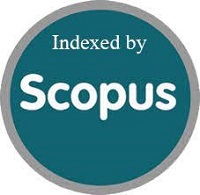Evaluasi Kepuasan Mahasiswa dalam Proses Pembelajaran Berbasis Simulasi Menggunakan Importance Performance Analysis (Studi pada Kelas Psikologi Eksperimen)
DOI:
https://doi.org/10.15408/jp3i.v1i3.10704Keywords:
Kepuasan mahasiswa, proses pembelajaran, importance performance analysisAbstract
Variabel kepuasan menjadi sesuatu yang penting mengacu pada posisi pendidikan tinggi sebagai bentuk layanan kepada mahasiswa. Alat evaluasi yang digunakan dalam proses ini adalah Importance Performance Analysis (IPA) yang diterapkan pada proses pembelajaran Mata Kuliah Psikologi Eksperimen (3 SKS). Kepuasan didefinisikan sebagai gap antara penilaian kinerja indikator dan tingkat harapan/kepentingan atas indikator. Pengukuran terhadap tingkat harapan diberikan sebelum proses perkuliahan dilaksanakan, sedangkan pengukuran terhadap penilaian kinerja dilakukan pasca pertemuan ketujuh dari rangkaian proses pembelajaran. Subjek penelitian adalah 66 mahasiswa peserta mata kuliah psikologi eksperimen. Hasil analisis yang dilakukan menunjukkan bahwa ada beberapa indikator dalam proses pembelajaran berbasis simulai yang dipersepsi penting dan memiliki kinerja tinggi oleh mahasiswa. Beberapa indikator tersebut antara lain sikap dosen dalam mengapresiasi pertanyaan mahasiswa, respon terhadap kesulitan yang dialami, transparansi sistem penilaian, dan fasilitasi dalam pengerjaan tugas. Kesimpulan lain yang diperoleh berdasarkan penelitian ini adalah bahwa IPA dapat digunakan sebagai alat evaluasi proses pembelajaran yang mampu memberikan rekomendasi konkrit terkait dengan indikator-indikator apa saja yang perlu ditingkatkan dalam proses pembelajaran selanjutnyaReferences
Angehrn. A.A. (2004). Designing simulation based learning experiences for colaboration competencies development. Centre for Advanced Learning T e c h n o l o g i e s ( C A LT ) , INSEAD, France. 196 Jurnal Pengukuran Psikologi dan Pendidikan Indonesia, Vol I, No 3, Juli 2012 Evaluasi Kepuasan Mahasiswa Dalam Proses Pembelajaran Berbasis Simulasi Menggunakan Importance Performance Analysis (studi Pada Kelas Psikologi Eksperimen)
Chen, Y.L, Hong, Y.R, Sung, Y.T & Chang, K.E. (2011). Efficacy of simulation based learning of electronics using visualization and manipulation. Educational Technology and Society, 14 (2), page: 297-277.
Fanning, R.M & Gaba, D.M. (2007). The role of debriefing in simulation - based learning . Review Articles at Society for Simulation in Healthcare, Vol. 2, No. 2, Summer 2007.
Gruber, T. Fur, S. Voss, R. Zikuda, M.G. (2010). Examining student s a t i s f a c t i o n w i t h h i g h e r education services using a new measurement tool. International Journal of Public sector Management, Vol. 23, No. 2, page: 105 123.
Mai, L. (2005). A comparative study between UK and US: student satisfaction in higher education
and its influential factors. J o u r n a l o f M a r k e t i n g Management. 21, page: 859-878.
O'Leary, P.F., & Quinlan, T.J. (2007. Learner-instructor telephone i n t e r a c t i o n : e f f e c t s o n
satisfaction and achievement of online students. The American Journal of Distance Education,
(3), 133-143.
Sinclaire, J.K. (2011). Student satisfaction with online learning: lessons from organizational behavior. Research in Higher Education.
Siniscalchi.J.M, Beale.E.K, Fortuna. A. (2008). Using importance-performance analysis to evaluate t r a i n i n g . P e r f o r m a n c e Improvement; Nov/Dec 2008; 47, 10; ProQuest. Page: 30-35.
Sweeney, J.C., & Ingram. D. (2001). A comparison of traditional and web-based tutorials in marketing education: an exploratory study. Journal of Marketing Education, 23(1), page: 55-61.
Thurmond, V.A., Wambach, K., Connors, H.R., & Frey, B.B. (2002). Evaluation of student satisfaction: determining the i m p a c t o f a w e b b a s e d environment by controlling for student characteristics. The American Journal of Distance Education, Vol: 16, No: 3, page: 169-189.
Wuensch, K.L., Azia, E.O., Kishore, M., & Tabrizi, M.H.N. (2008). Pedagogical characteristics of online and face-to-face classes. International Journal on E-Learning, Vol: 7, No: 5, page: 523-532.
Zulaifah.E, Kurniawan.I.N dan Nu'man.T.M, (2007). Studi penelusuran lulusan untuk identifikasi kompetensi bagi lulusan prodi psikologi UII. Jogjakarta: DPPM UII.



